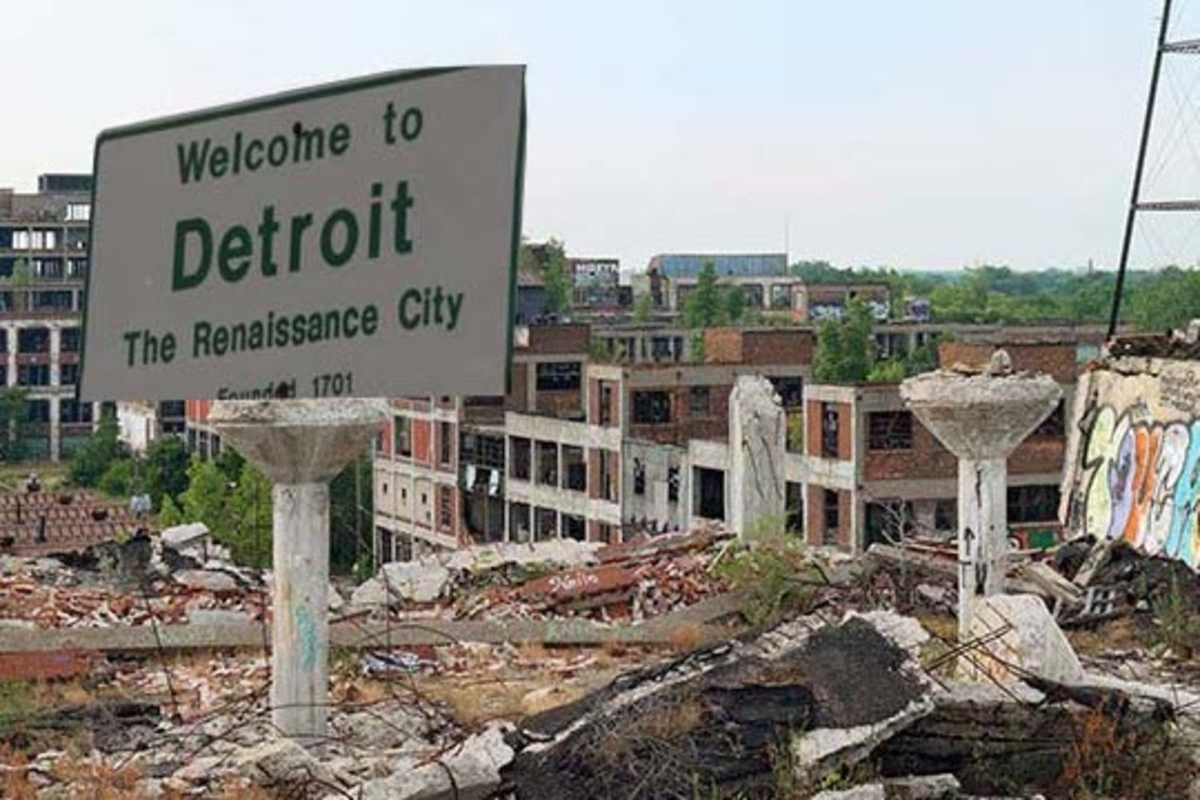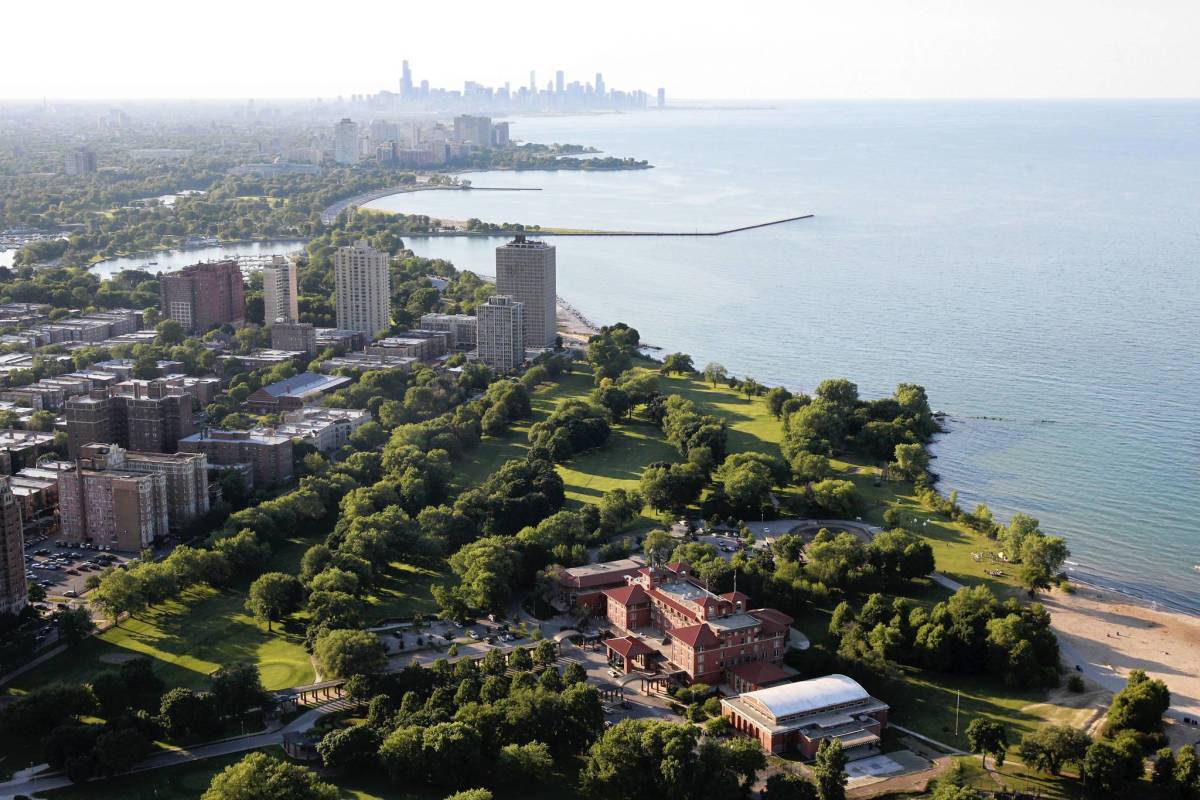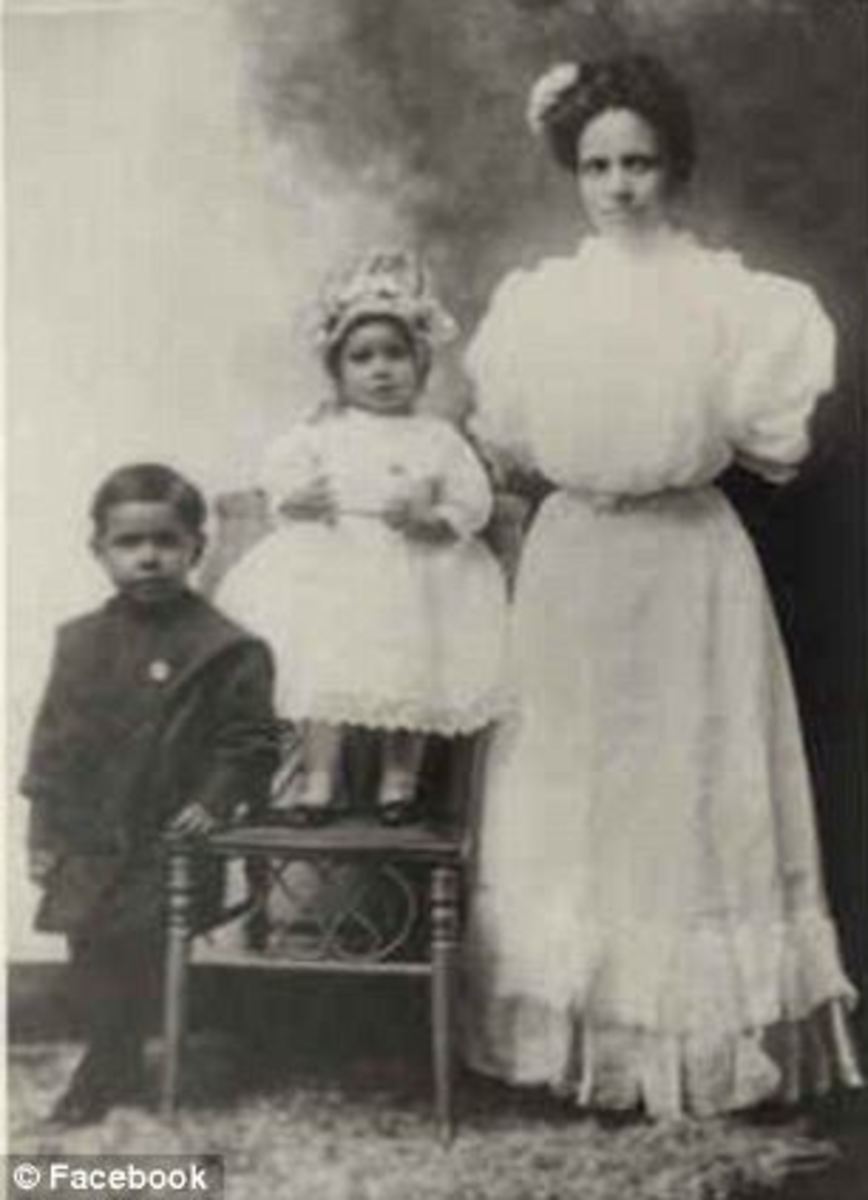Is Detroit a Dying City?
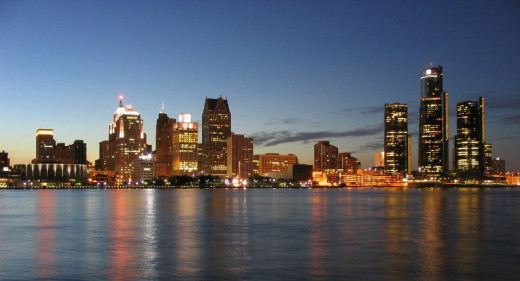
Detroit Today
The author's views are his own and not meant to convey all-around opinion of Detroit, the city he loves. This article is, some will say, 'hopeful'. To say Detroit isn't a dead city is bold. Abandoned buildings abound, the murder rate is back near the top of any list of US cities, and the economy is poor, but on the rebound.
There are, however, certain truths to tell and myths to banish. For one, the author is white and has spent several years living in tough black communities, and is still here, unscathed, to write about it. For another, media, here and abroad, has had it in for Detroit for a long time. In other words, Detroit's woes make for a good story.
The reality is that the people of Detroit are finding their way. It's as if a sandcastle were washed away with most of its builders and a few brave souls have decided to undertake the vast project of rebuilding it. This article is for them.
Detroit Skyline photo By Shawn Wilson [CC-BY-SA-1.0) http://creativecommons.org/licenses/by-sa/1.0, via Wikimedia Commons.
Hoping for Detroit's Downfall
It is a common view that Detroit is a dying city. Writers, scholars, and media personalities have written off this once mighty industrial metropolis as a doomed shell of its former self. Plagued by leadership scandals and empty coffers, Detroit, they say, will fade into well-deserved obscurity. Some speculate it will split up into several towns and others wish to let it revert back to nature like some giant, bizarre state park. They are pessimistic in the extreme.
The media portrays Detroit as a violent and sad place populated by uncaring citizens. They say it’s unsafe for travelers and deadly for its residents. Cries for its dismantling echo from coast to coast.
Americans in other cities boast that their cities might be in bad shape, but they take comfort from the fact that “at least we don’t live in Detroit.”
She is the butt of late night jokes. Her leaders and people are featured often as examples of a broken America. Photographers snap photos of the dreariest sides of town while others spout statistical data skewed to make sense of their own racism. For Detroit, today, is populated by 'the minority' (10% white) and led by African-Americans. It is they who have inherited the once-thriving Michigan city. Or so it might seem.
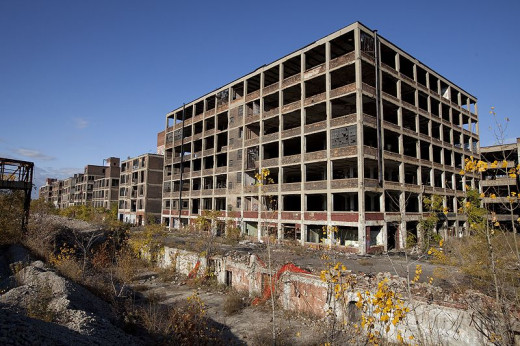
Detroit's Transformation
Detroit has indeed undergone negative changes. Years ago, factory work was plentiful while automotive giants and labor dominated the news. Modern architects from all over the world designed elegant structures and sophisticated, meaningful public venues. However, as has been the case with most prosperous American cities, when wealth grew, unscrupulous politicians, labor leaders, and criminals discovered avenues to gain profit from a thriving economy.
With corruption came other strife and soon Detroit was left with its infamous, imaginary borders between white and black. The suburbs surrounding Detroit saw their populations explode as white former-Detroiters blamed blacks for the city’s volatile civil rights movement and corrupt ways. There’s still bitterness emanating from the suburbs from whites who abandoned the city to the African-American minority when the fires that forge equality erupted.
Corrupt old-school leaders were replaced with modern versions and no one stopped the acceleration of economic disease that infected Detroit’s heart and soul. A pseudo-Southern lament sounded from the dying streets and its tune is still carried on the air today.
Chicago and New York City both went through periods of severe corruption. Detroit is still going through such an era as evidenced by the seemingly indifferent attitude of its citizens toward corruption. There is an acceptance of unscrupulous earning that must be replaced with honesty and integrity before Detroit can move beyond its current state.
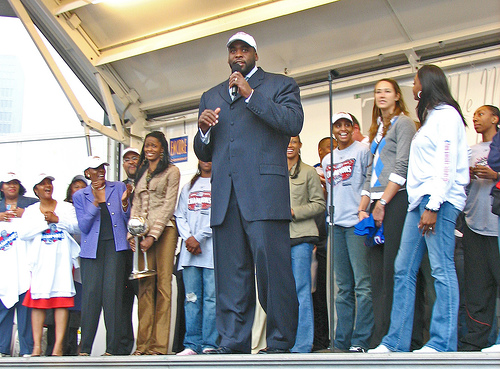
Detroiters Looking Out for One Another
Now Governor Rick Snyder is readying to appoint an emergency financial manager who will take over governance of the flailing city in a move that will significantly strip leadership power from elected black leadership. Feelings about the move are mixed, but there are many who feel an EM (emergency manager) is necessary at this point.
On its face, this might seem a power grab by non-Detroiters or another way to keep minorities down. There's merit in that argument, but many, including minorities, who live in Detroit are breathing a sigh of relief. Finally, consolidated help, black and white, is on its way. You see, there's a movement of its own going on in the city, a rebuilding movement centered not on erecting new structures but focused on people.
When Detroit saw its population fall so drastically over a short period of time, something unpredictable happened. The people that stayed behind made up their minds that things were going to work out and even get better for them and their children - no matter what. It's no secret that many neighborhoods have already been operating under their own sort of emergency manager for some time. With a shortage of public services, they were forced to look out for one another. Some have taken donations for lighting and others have formed unofficial civilian police forces (i.e. neighborhood watch).
Detroiters have grown tired of drug dealers, immoral church leaders, corrupt city officials, and crime. Unlike previous generations, they aren't afraid to do something about it. Entire neighborhoods separate themselves from dangerous neighborhoods and warn dealers and junkies that they won't be doing business on their watch. Self-appointed community leaders spend considerable resources making sure their neighborhoods receive proper civil attention.
There is a silent battle cry that clearly resounds. Change is coming to Detroit. The people aren't going to sit idle while being robbed, killed, and fleeced. And they will win, because the good people of Detroit are not alone in this.
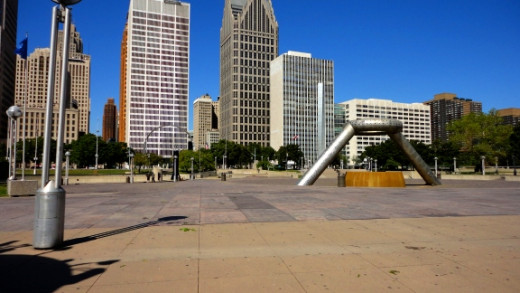
American City of Detroit
Whatever Governor Snyder's intentions toward Detroit are, and this writer doesn't think they are malicious, his willingness to tie the State of Michigan's future to Detroit's is a positive step for all. How would you feel if you were raising children in a bombed-out neighborhood infested with drugs and violence? What if your level of income prevented you from getting out? What if, God forbid, one of your children were killed and you still couldn't get your other children out of unsafe living conditions?
What's happening in Detroit now isn't fair. Mothers have altered parenting styles accordingly, fathers are doing whatever they have to to put food on the table and keep their kids safe, and children are being traumatized.
Fiscal change in Detroit will bring about many other positive changes. Integrity among black communities will rise. Whites will move back to the city once they deem it safe and prosperous. Middle Eastern and Hispanic communities will be more willing to move out of their perceived safe zones and integrate.
Detroit is like a beautiful automobile buried under years of grime and rust. Strolling about downtown, one can feel its leashed potential. Wouldn't it be amazing if new construction, integration, and civic pride spread east and west from Woodward Avenue? The hope that mothers and grandmothers and children thought was dead is coming back alive. African-Americans in Detroit aren't going to struggle alone anymore. Detroit, after all, isn't a black city, it's an American one.
The problem with Detroit isn't its people or its lack of money, it is its prolonged isolation. Let's all hope that's about to change.

